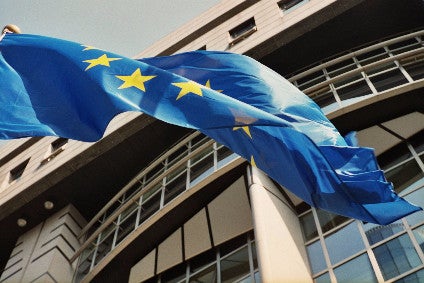
The EU has set a target of net-zero greenhouse-gas emissions by 2050, a goal that will be enshrined in law to be put on the table next March.
The aim is at the centre of a European Green Deal announced by The European Commission today (11 December).

Discover B2B Marketing That Performs
Combine business intelligence and editorial excellence to reach engaged professionals across 36 leading media platforms.
Through a series of measures, the EU wants to become “the first climate-neutral continent” by 2050, Brussels announced.
Ursula von der Leyen, the Commission’s President, said: “The European Green Deal is our new growth strategy – for a growth that gives back more than it takes away. It shows how to transform our way of living and working, of producing and consuming so that we live healthier and make our businesses innovative. We are determined to succeed for the sake of this planet and life on it.”
The Commission plans to present a “European climate law” within 100 days. It is also planning a “biodiversity strategy for 2030” and unveil a “farm to fork strategy” for sustainable food next spring.
“Although the transition to more sustainable systems has started, feeding a fast-growing world population remains a challenge with current production patterns,” the Commission said in a statement. “Food production still results in air, water and soil pollution, contributes to the loss of biodiversity and climate change, and consumes excessive amounts of natural resources, while an important part of food is wasted. At the same time, low quality diets contribute to obesity and diseases such as cancer.”

US Tariffs are shifting - will you react or anticipate?
Don’t let policy changes catch you off guard. Stay proactive with real-time data and expert analysis.
By GlobalDataBrussels plans to push for a “significant” reduction in the use of chemical pesticides, fertilisers and antibiotics. It will also put forward ways to “help consumers choose healthy and sustainable diets and reduce food waste”.
In a statement, industry organisation FoodDrinkEurope said: “We are determined to multiply our efforts to help achieve more sustainable food systems and effectively implement the United Nations Sustainable Development Goals (SDGs).”
Mella Frewen, FoodDrinkEurope’s director general, added: “Our industry remains as dedicated as ever to achieving more sustainable food systems. Simply put, sustainability is the right thing for our businesses, for our society, and for our planet.”
European consumer advocacy group BEUC said the EU “needs to make it significantly easier for consumers to lead sustainable lives” – and highlighted food, mobility, housing and finance as four “priority areas”.
“It must become easier, more affordable and attractive to eat food that is produced in a sustainable way. This will require action as regards how and what kind of food is being produced,” BEUC said.
By next summer, the Commission will release an “impact assessed plan” to lift the EU’s target to cut greenhouse gas emissions by 2030 “to at least 50% and towards 55%” compared with 1990 levels. The current target is for a reduction of 40%.
Brussels conceded meeting the objectives of the European Green Deal would mean “significant investment”. Achieving the current 2030 climate and energy targets is estimated to require EUR260bn of additional annual investment, representing about 1.5% of the EU’s GDP in 2018.
“This investment will need the mobilisation of the public and private sectors. The Commission will present in early 2020 a Sustainable Europe Investment Plan to help meet investment needs,” Brussels said.





